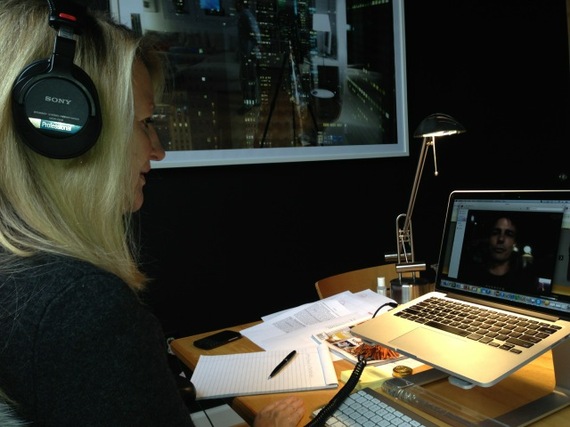When I was a producer for CBS Sunday Morning (a million years ago), I lived on an airplane. If you wanted to produce TV shows, you had to go to the place they were being made.
A few years later, when we started producing Trauma, Life in the ER for TLC, I was still living on a plane and spending my days and night in hospital ERs all over the country.
Television production and travel went hand in hand.
But television is very much the child of technology and as the technology has improved and changed, so too has the manner in which we produce TV shows.
We are currently in production in about five locations around the world on a number of different series; from Chad to Ethiopia to New Jersey. There was a time when shooting a series in Ethiopia meant schlepping to Addis to EP the series. But no more.
Now, we can monitor each and every series as it moves along though the various stages of production from home -- thanks to Skype and the ability of the VJs to shoot and cut segments on their laptops in the field as they go.
Needless to say, this makes the whole operation a good deal more efficient, and allows us to produce not only faster and cheaper but with much more real time control.
In the 'old days' we used to be in the field and then came home with a great massive bag of tapes that then had to be screened in real time, logged and a scripting process begun. It used to take 19 weeks to produce an hour of television. Today, that time has been cut to days.
Not so many years ago, we produced a 13-hour series on the Pacific Rim for The Travel Channel. To do this, Lisa and I moved to Sydney, Australia, rented an apartment in the Woolloomooloo Wharf and basically moved in for a few months. No more!
Next month, we are going to run our first Master Class with The Guardian on the many uses of Google Glass.
As with all new technologies, no one really knows what uses they will be put to, but it occurs to me that with the field crews wearing Glass, we will be able to essentially be 'on site' at all times, without ever leaving home.
Virtual production.

